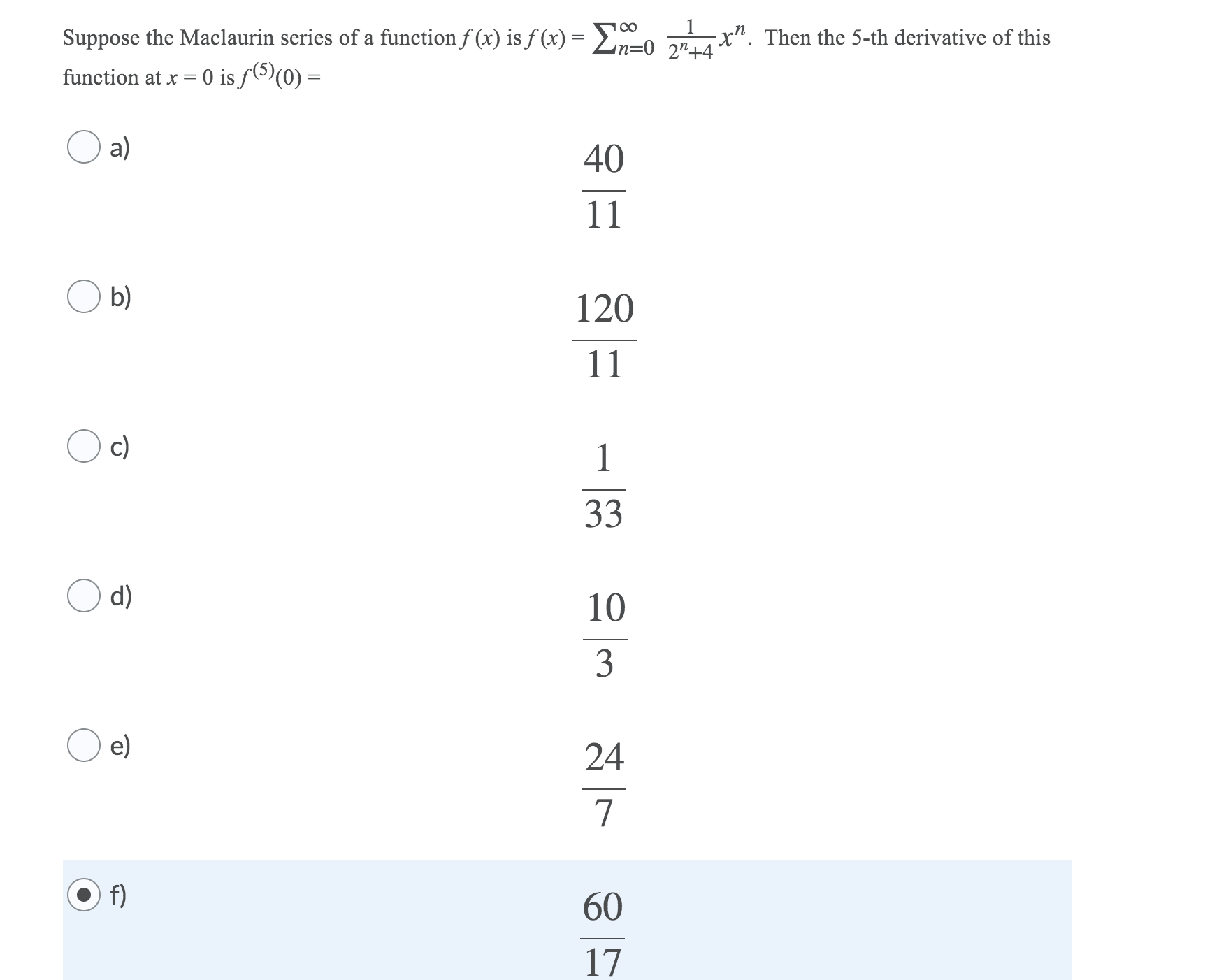Answered step by step
Verified Expert Solution
Question
1 Approved Answer
Suppose the Maclaurin series of a function f ( x ) is f ( x ) = n=0 1 2 n +4 x n {version:1.1,math:(sum_{n=0}^infty

Suppose the Maclaurin series of a functionf(x) isf(x) =
n=0
1
2
n
+4
x
n
{"version":"1.1","math":"\(\sum_{n=0}^\infty \frac{1}{2^n+4}x^n\)"}.Then the 5-th derivative of this function atx= 0 isf(5)(0) =
Question 11 options:
a)
40
11
{"version":"1.1","math":"\frac{40}{11}"}
b)
120
11
{"version":"1.1","math":"\frac{120}{11}"}
c)
1
33
{"version":"1.1","math":"\frac{1}{33}"}
d)
10
3
{"version":"1.1","math":"\frac{10}{3}"}
e)
24
7
{"version":"1.1","math":"\frac{24}{7}"}
f)
60
17

Step by Step Solution
There are 3 Steps involved in it
Step: 1

Get Instant Access to Expert-Tailored Solutions
See step-by-step solutions with expert insights and AI powered tools for academic success
Step: 2

Step: 3

Ace Your Homework with AI
Get the answers you need in no time with our AI-driven, step-by-step assistance
Get Started


